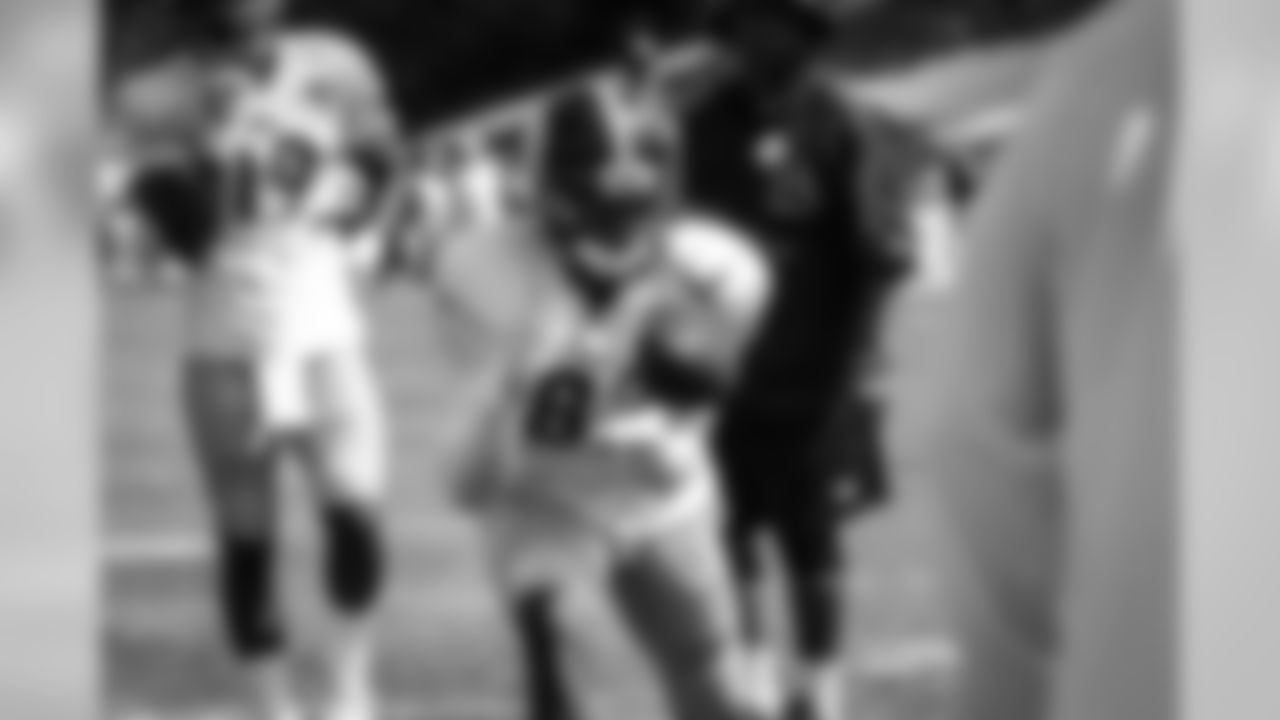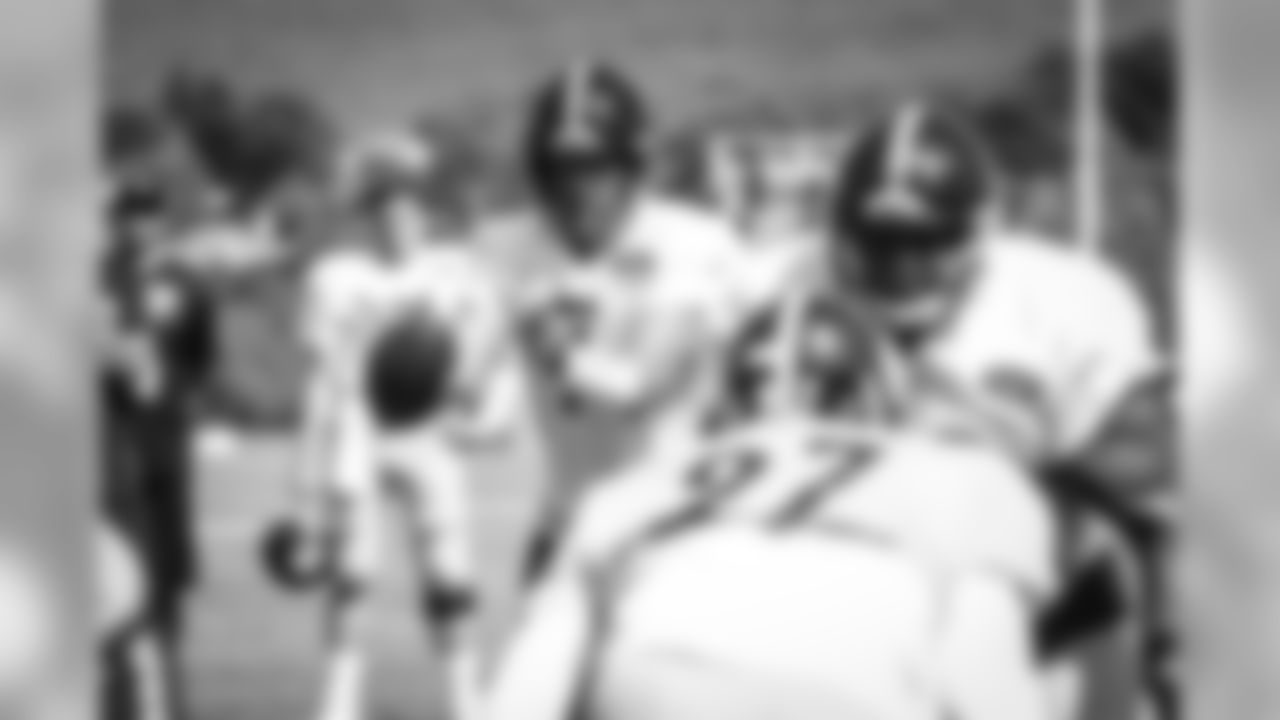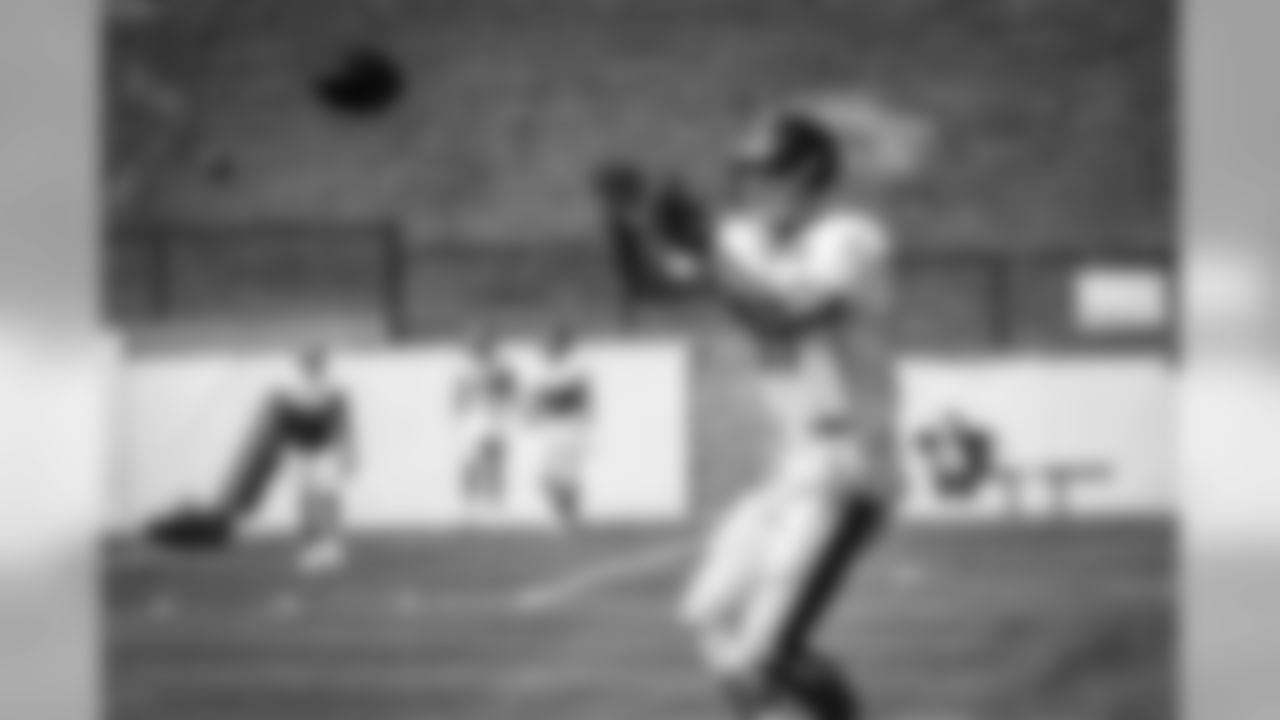Q. As you have watched the Artie Burns vs. Antonio Brown competition at back-to-back training camps, is there a chance Burns could have his confidence shaken by getting beat so often?
A. I really don't think there's a chance of that, and that's an element of the decision-making process for me. The years I have been in this job has provided me with perspective, and I see their relationship the same way I saw Ike Taylor, who was in his prime, develop a relationship with a young Antonio Brown. Antonio took his lumps some days, but he was a game competitor, and his game evolved. Over time he became legitimate competition for Ike. It's my hope that the same can be said about this developing relationship now that Antonio is on the veteran side of it. I'm not concerned about Artie's confidence wavering. I fully expect Artie to adapt and over the course of time become legitimate competition for Antonio.
**
Q. Does a young player need to experience success?**
A. I think those guys have perspective. I think he realizes that on a down-in and down-out basis, he's going against one of the best, if not the best, in the world. There's a certain deal of pride and confidence in just understanding that matchup, and what happens within that matchup is really secondary.
Q. Carnell Lake said that as he was evaluating video of the defensive backs, he noticed that Antonio Brown has increased his straight-line speed, that he has improved his acceleration in getting to top speed. Isn't it unusual for a guy to be getting faster at 29?
A. I do see it, and it's really not that unusual when you think about it. Antonio is continually developing in the area of strength training. He's a much stronger man than he was when he was a younger guy, and I think the improvements in speed and his ability to get to that speed is steeped in those gains that he's attained in strength. He's also a stronger player in terms of combat with his hands, in terms of getting off the line of scrimmage. He's also a tougher guy to tackle, to get on the ground. He comes out of things that he didn't come out of as a young guy when he was playing at 180 pounds, and now he plays in the mid-190s. It's all a natural maturation process for a developing professional football player who is not only an elite athlete but an elite trainer.
Q. So many of these athletes have personal trainers, but every NFL team also has a strength and conditioning coach. In your mind, what's the job of an NFL strength and conditioning coach?
A. He's personally responsible for the growth and development of all of these guys individually. That is a complex job, because at different points of the year we have as many as 90 guys on our roster, and they have to coordinate to meet the needs of all of these men, not only in terms of growth and development, but in many cases rehabilitation. They get spread a little thin. It's a challenging job, but such is life.
Q. You have referenced how some guys over the course of a training camp will move up in class. It's sometimes referred to moving up to the varsity. How does a guy move up in class to go against better competition? What's he doing?
A. I had this lecture with the team just the other night, and I try to put it in very simple terms. I'm thoughtful about the competitive situations I put these guys in. Some of the repetitions are varsity, and some of the repetitions are junior varsity. If you dominate enough JV reps, I'm going to get you varsity reps, which means I'm going to pit you against a known, capable, veteran guy, and how you do in those situations will determine whether you continue to get varsity reps. There are a lot of reps going on all over the practice field, whether it's receivers vs. defensive backs, or unit vs. unit, and I try to make it simple. You get a young guy dominating in some lower groups, in a way that Anthony Chickillo has during the course of this camp, you try to get him in the varsity game and see how he performs under those circumstances. The guys can relate to that, the guys understand that, the guys know what varsity reps are and what JV reps are. They can relate to that analogy, so the guys not only want the varsity reps, but they want to do well with those reps.
Q. When camp opened and you were asked about Le'Veon Bell not reporting, you said, "I've had good, clean communication with him." What did you mean by that?
A. We don't have any problem talking on a variety of subjects: This season, his level of preparation, what's going on here, what needs to transpire here. But also on a personal level. He's a father, he's got a daughter, his life is changing in a lot of ways from that perspective. I enjoy the personal relationships I have with guys. We're not only talking about the elephant in the room – his contractual situation – but our relationship continues to move in a manner it has moved since we drafted him.
Q. So then are you comfortable this is going to be resolved in a way that isn't detrimental either to him or to the football team?
A. I'm not. I'm not comfortable. I think it would be naïve to be comfortable. If somebody is not here working and developing in the formal ways that we subscribe, then there are potential consequences for that. Consequences for him individually. There are consequences for us collectively. So, no I'm not (comfortable).
**
A close look at the moment just before a catch is made.














Q. What can you learn about your team during the time spent at training camp before the preseason opener?**
A. We hit a lot of situations and scenarios during the team development process – two-minute, short-yardage, goal-line, end-of-the-half, end-of-the-game scenarios, third-down, possession downs, etc. – but all of those things are worked on in a controlled environment. There is a certain element of drill play that's not football. One of the first things I always look for when you step into a stadium for the first time with a group of individuals is their ability to transfer the understanding that they can display in a controlled setting into a game-like setting.
Those situations are going to roll, and they're going to roll throughout the course of a game, and a guy's ability to pivot and understand the scenario and be able to make decisions and play appropriately relative to in-game circumstances is exciting to me. For example, in a practice period we'll have 12 snaps, and all of those snaps will be third downs. Every single one of them. So for a short period of time, a guy can get focused in on things relative to third down – what's the down-and-distance, where are the chains, what are some issues per call relative to those circumstances. Over the course of a real football game, as you know, he's going to move in and out of those third down scenarios, he's going to move in and out of those short-yardage scenarios, and his ability to pivot and understand that and have that understanding be displayed in his play is ultimately the thing you're looking for when you step into the stadium for the first time. Particularly with a guy like Josh Dobbs at the quarterback position. It's going to be an exciting night.
Q. You just mentioned Josh Dobbs, and you have already said he's going to start. What are some of the challenges a rookie quarterback will face in an NFL game that fans might not realize?
A. Communication. This will be his first opportunity to wear that, if you will, and to be responsible for communicating with his teammates, be responsible for communicating with his coaches, and that happens on the field, off the field, in between series. It's just going to be interesting to see how he manages that communication, that ability to communicate, that ability to give and receive communication in the midst of a developing game where there will be positive plays and negative plays. How he wears all of that will be insightful.
Q. Will this be his first experience with a play-clock, or do you incorporate that into training camp practices in some way?
A. We incorporate it into practice. I'm not necessarily concerned about pace being an issue, particularly with today's players. The pace of the college game and the ways that a lot of these guys work in a college game in terms of pace has really created an issue where pace is not the issue for young quarterbacks that it used to be.
Q. How does the process work where someone such as Hines Ward comes to camp to provide some insight to the receivers, or Alan Faneca to the offensive line? Is it more valuable when those former players are former Steelers?
A. It comes about in a really organic way. Usually those guys express a desire to participate, and they do so for a lot of reasons. They simply want to come back and remain close to the organization, or maybe they're pondering a career in this industry, be it coaching or scouting. It starts there. I'm always open to it, because I realize the value their life experiences provide to these young people. They get to share an oral history with these guys and educate these guys, not only about what it means to be a professional athlete, but what it means specifically to be a member of the Steelers. I think it's beneficial on both ends. It serves these guys in a big way and help them transition in life and maybe explore the possibility of things they want to do with their careers moving forward. And I also think the young guys really appreciate it, because in many instances they grew up watching these guys play, and their perception about what the Steelers are is shaped by the play of these men. They really get a treat. They get an opportunity to learn from people who know, but also they get an opportunity to rub elbows with guys they grew up watching wear the black-and-gold.
**
Q. In this preseason opener, if you come away from it believing a certain player has showed you it's not too big for him, what did he show you?**
A. That he's able to roll with the punches within the game and whatever that entails. That he's done a good job of being able to absorb what happens and also remain focused on the task at hand. To play with a certain level of urgency and tempo. And to have the ability to communicate not only with his teammates but with his coaches in game and on the sideline.
Q. Once when we talked about the process back in 2007 that got you hired here, you said you really weren't looking for a head coaching job at the time, but when this opportunity came up you would've walked here from Minneapolis. Into your second decade in this job and with a fresh contract extension, is the job what you expected it to be?
A. It's probably better, and I mean that. Often times in reality, it's probably not as intriguing as the visit, but in this instance it is because I get to enjoy this environment on a day to day basis. I get to help shape this environment on a day to day basis. I get to do and be involved in what I love to do around great people who share the same passions that I share, people who are singularly focused on the things I'm singularly focused on professionally. And that's to go about this business in the right manner and to represent this organization and this community well, and to pursue and win championships.















